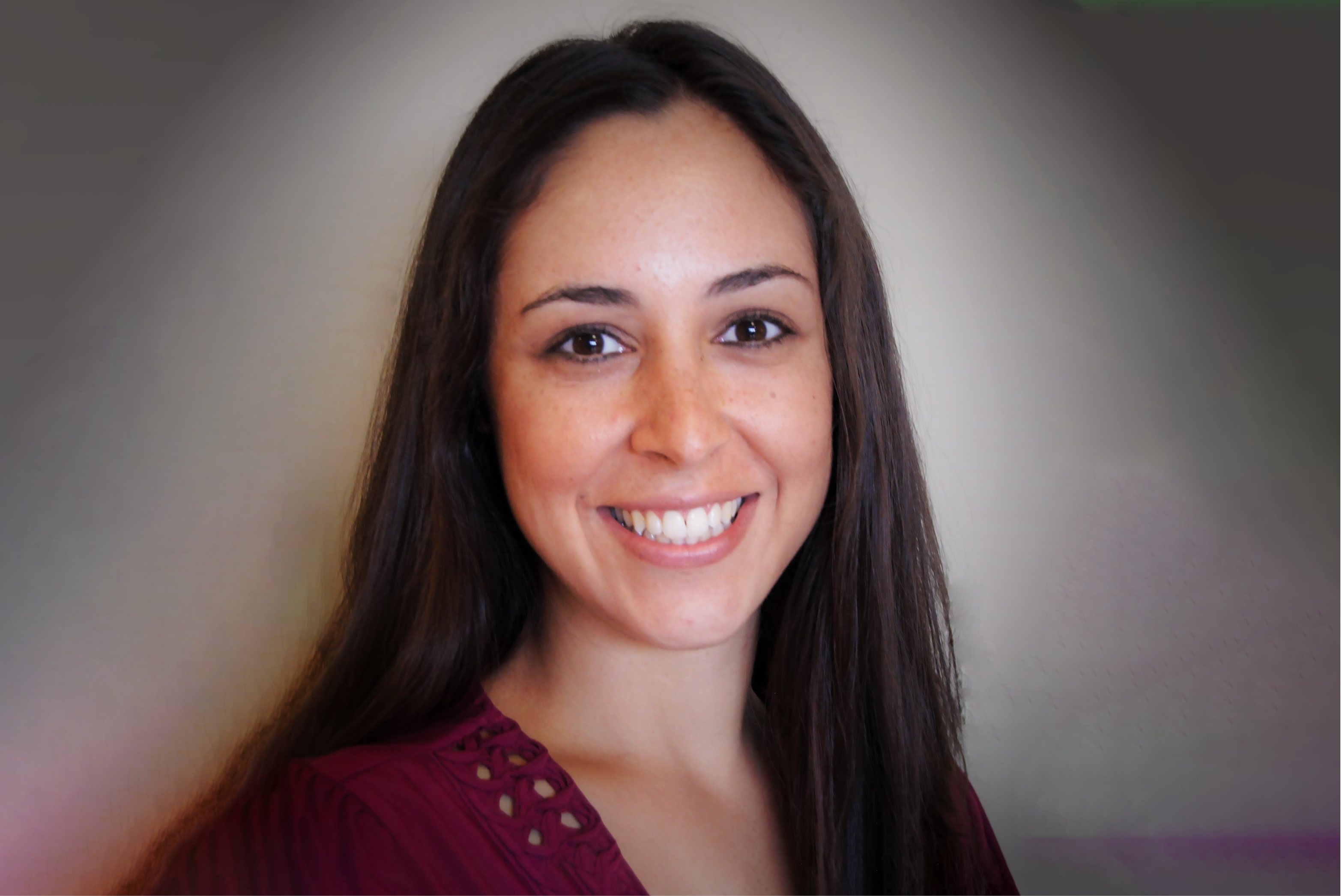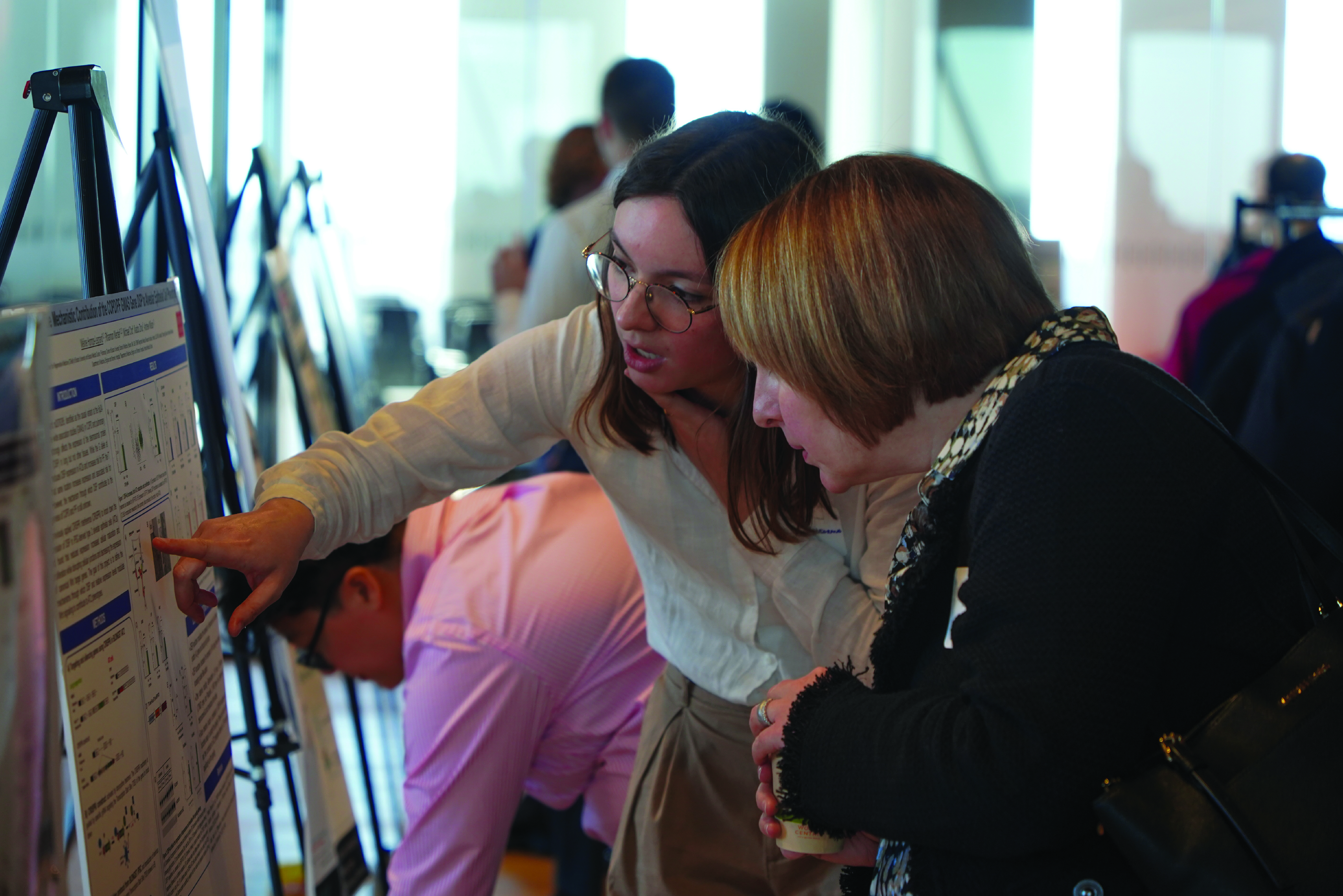KL2 Career Development Award
Currently on hold. Updates regarding future application cycles will be provided as they become available
A key institutional strength, CTSI’s KL2 Career Development Award is a mentored program for BU’s most promising junior faculty translational researchers. Faculty who are mentored attain improved research skills and are more likely to compete successfully for research support.
Candidates apply annually to the program which generally supersedes T32 support and is intended to precede NIH K awards or R grants. The KL2 program provides a salary of up to $100,000 per year for two years, and additional financial support for training, lab costs, and travel.
Eligibility Criteria
- Must be US Citizen, non-citizen national, or a permanent resident.
- Have MD/PhD/DDS or equivalent degree.
- Have Junior Faculty appointment at BU at the time of the application.
- Cannot be PI of an R01 or NIH funded K award now or in the past.
- Cannot have a pending K-award under NIH review.
Questions
Contact BU CTSI Services with questions about your submission: ctsisvcs@bu.edu
2015–2024 KL2 Scholar Awardees
Evaluating Racial/Ethnic Inequities in Antibiotic Prescribing: Implications for Antibiotic Stewardship
Dr. Burrowes received a KL2 Career Development Award from the Boston University Clinical and Translational Science Institute (BU CTSI). The award is effective was of April 1, 2024 for a period of 12 months, with an end date of March 31, 2025. Funding for an additional year was provided by Infection Diseases, Boston University Chobanian & Avedisian School of Medicine. The 2 years of funding will cover the period of April 1, 2024 to March 31, 2026
 Dr. Shana A. B. Burrowes received her MPH in Global Communicable Diseases from the University of South Florida and her PhD in Molecular Epidemiology from the University of Maryland Baltimore. She completed her postdoctoral training in the Social Innovation in Drug Resistance program at Boston University. She is an Assistant Professor of Medicine at Boston University Chobanian and Avedisian School of Medicine. She is a faculty member in Boston University’s Evans Center for Implementation & Improvement Science (CIIS).
Dr. Shana A. B. Burrowes received her MPH in Global Communicable Diseases from the University of South Florida and her PhD in Molecular Epidemiology from the University of Maryland Baltimore. She completed her postdoctoral training in the Social Innovation in Drug Resistance program at Boston University. She is an Assistant Professor of Medicine at Boston University Chobanian and Avedisian School of Medicine. She is a faculty member in Boston University’s Evans Center for Implementation & Improvement Science (CIIS).
Health Information Technology Tools to Improve WIC Retention and Decrease Inequities in Food Insecurity
Food insecurity disproportionately impacts United States households with children and Black and Hispanic households, contributing to inequities in health outcomes. The Special Supplemental Nutrition Program for Women, Infants, and Children (WIC) is a federal nutrition program that reduces food insecurity for participating low-income families, but participation drops significantly after children reach 1 year of age. Dr. Egan’s KL2 project will inform the future development and implementation of health information technology tools in pediatric primary care aimed at integration between pediatric primary care and WIC, with the goal of improving WIC retention and decreasing inequities in food insecurity. The project includes (1) a quantitative analysis of Massachusetts WIC administrative data to identify child-, family-, and systems-level factors associated with retention in Massachusetts WIC and (2) qualitative interviews with caregivers, pediatric clinicians/staff, and WIC staff to inform the development of health information technology tools to improve WIC retention.
 Dr. Kelsey A. Egan is a general pediatrician at Boston Medical Center and an Assistant Professor of Pediatrics at the Boston University Chobanian & Avedisian School of Medicine. She has a BS in Human Biology, Health, and Society from Cornell University, an MD from Columbia University College of Physicians and Surgeons, and an MSc in Epidemiology from Boston University School of Public Health. Dr. Egan’s research interests focus on improving clinical-community integration in order to decrease inequities in health outcomes for children and families. She is particularly interested in developing and implementing health information technology interventions to prevent food insecurity in early childhood through improved integration between pediatric primary care and federal food assistance programs, including the Special Supplemental Nutrition Program for Women, Infants, and Children (WIC).
Dr. Kelsey A. Egan is a general pediatrician at Boston Medical Center and an Assistant Professor of Pediatrics at the Boston University Chobanian & Avedisian School of Medicine. She has a BS in Human Biology, Health, and Society from Cornell University, an MD from Columbia University College of Physicians and Surgeons, and an MSc in Epidemiology from Boston University School of Public Health. Dr. Egan’s research interests focus on improving clinical-community integration in order to decrease inequities in health outcomes for children and families. She is particularly interested in developing and implementing health information technology interventions to prevent food insecurity in early childhood through improved integration between pediatric primary care and federal food assistance programs, including the Special Supplemental Nutrition Program for Women, Infants, and Children (WIC).
Individual and Neighborhood Level Sociodemographic Predictors of Disengagement in Early Psychosis Care
Dr. Gouse’s Kl2 work will use a mixed methods approach to investigate the impact of both patient sociodemographic and area socioeconomic factors on the risk of treatment disengagement in specialty EI care for psychosis. Under the mentorship of Drs. David Henderson, Janice Weinberg, and Hannah Brown, Dr. Gouse and her team will use a novel approach to quantify neighborhood socioeconomic deprivation using electronic medical record data and multiple data sources from the US Census Bureau. The qualitative arm of this work will further explore the impact of key demographic factors and social determinants of health on treatment course in early psychosis. By combining data from multiple sources, the aim is to gain a comprehensive understanding of the patient populations in EI care at the highest risk of treatment dropout and other adverse outcomes. The overarching goal of this work is to inform the design and implementation of a novel adaption of the CSC model aimed at reducing the risk of treatment disengagement. Further, this work aims to spark the development of a more tailored and equitable approach to EI care for psychosis.
![]()
 Dr. Brittany Gouseis one of our institutional K Scholars through Boston University’s Clinical and Translational Science Institute. Dr. Gouse is an Assistant Professor of Psychiatry at Chobanian and Avedisian School of Medicine, Assistant Clinical Director of the WRAP program, and the 2023-2025 American Psychiatric Association’s Psychiatric Research Fellow. She co-directs WRAP’s Advancing Coordinated Care through Epidemiologic Studies in Schizophrenia (ACCESS) initiative with mentor Dr. Hannah Brown.
Dr. Brittany Gouseis one of our institutional K Scholars through Boston University’s Clinical and Translational Science Institute. Dr. Gouse is an Assistant Professor of Psychiatry at Chobanian and Avedisian School of Medicine, Assistant Clinical Director of the WRAP program, and the 2023-2025 American Psychiatric Association’s Psychiatric Research Fellow. She co-directs WRAP’s Advancing Coordinated Care through Epidemiologic Studies in Schizophrenia (ACCESS) initiative with mentor Dr. Hannah Brown.
She earned MD-MPH through the State University of New York Upstate Medical University and Syracuse University dual degree program. She has proudly worked at Boston University/Boston Medical Center (BU/BMC) since 2018. She completed both her Residency in Adult Psychiatry and Fellowship in Public Psychiatry at BU/BMC. Through her Fellowship in Public Psychiatry, Dr. Gouse specialized in the care of individuals living with schizophrenia and other forms of serious mental illness. She currently sees patients for psychopharmacology in BMC’s specialty psychosis clinic, the Wellness and Recovery After Psychosis (WRAP) Program.
Dr. Gouse’s research is primarily in epidemiology, with a focus on studying the drivers of morbidity and premature mortality in schizophrenia. Schizophrenia is associated with considerable disability and a 13-15 year reduction in life expectancy. The widely adapted coordinated specialty care (CSC) model for early intervention (EI) for psychosis aims to improve longitudinal outcomes in schizophrenia. Prior work in the United States suggests CSC may only improve outcomes among patients with high socioeconomic status. Further, treatment dropout in EI care for psychosis is common and raises the risk of devastating outcomes.
Modifiable Mediators of Maternal Adherence to Safe Sleep and Breastfeeding Among Black and Hispanic Mothers of Preterm Infants
Within the high-risk preterm population, rates of safe sleep practices and breastfeeding are disproportionally low among non-Hispanic Black (Black) and Hispanic mothers. These disparities predispose Black and Hispanic preterm infants to preventable adverse outcomes. The goal of this KL2 is to use a well-established behavioral framework- the Theory of Planned Behavior – to investigate modifiable mediators of maternal adherence to safe sleep and breastfeeding among Black and Hispanic mothers of preterm infants to inform intervention development. In order to yield culturally sensitive intervention targets, she will examine mediating pathways taking into account the context of cultural heterogeneity and social factors, and incorporating the perspectives of foreign-born and US-born mothers and mothers who speak languages other than English.
 Dr. Erika (Gaby) Cordova Ramos is an Assistant Professor of Pediatrics at Boston University School of Medicine, a clinical neonatologist at Boston Medical Center, and a research fellow in the Evans Center for Implementation and Improvement Science. She received her medical degree from Universidad Peruana Cayetano Heredia in Peru and completed her pediatric residency in the Boston Combined Residency Program and her neonatology fellowship in the Harvard Neonatal-Perinatal Medicine Program. Dr. Cordova Ramos’s research focuses on the development and implementation of interventions to reduce racial and ethnic disparities in evidence-based preterm infant care practices to improve preterm birth outcomes. She is also involved in Quality Improvement Initiatives to address social determinants of health in the neonatal intensive care unit setting and to improve family engagement among low-income diverse families of high-risk infants
Dr. Erika (Gaby) Cordova Ramos is an Assistant Professor of Pediatrics at Boston University School of Medicine, a clinical neonatologist at Boston Medical Center, and a research fellow in the Evans Center for Implementation and Improvement Science. She received her medical degree from Universidad Peruana Cayetano Heredia in Peru and completed her pediatric residency in the Boston Combined Residency Program and her neonatology fellowship in the Harvard Neonatal-Perinatal Medicine Program. Dr. Cordova Ramos’s research focuses on the development and implementation of interventions to reduce racial and ethnic disparities in evidence-based preterm infant care practices to improve preterm birth outcomes. She is also involved in Quality Improvement Initiatives to address social determinants of health in the neonatal intensive care unit setting and to improve family engagement among low-income diverse families of high-risk infants
Systems Modeling for Reducing Disparities in Youth Firearm Violence
Reducing racial/ethnic disparities in youth firearm injuries is likely to require multilevel intervention strategies that address a range of social, environmental, and societal influences. Dr. Jay’s KL2 project uses systems science methods, including group model building and computer simulation modeling, to identify promising leverage points and combination approaches. This career development award includes advanced training in community-engaged research, agent-based modeling, and critical race theory. His co-primary mentors are Dr. Emily Rothman, Professor of Community Health Sciences at BUSPH, and Dr. Sandro Galea, the Dean and Robert A. Knox Professor at BUSPH.
 Dr. Jonathan Jay is an Assistant Professor of Community Health Sciences at BUSPH. He works at the intersection of data science and community health, focusing on relationships between the built environment and health and safety risks. Before receiving his doctorate in public health (DrPH) from the Harvard T.H. Chan School of Public Health, Dr. Jay trained as a lawyer-ethicist and worked in global health policy. He received a BA with honors from Brown University, a JD cum laude from Georgetown University Law Center, and an MA in philosophy from Georgetown University.
Dr. Jonathan Jay is an Assistant Professor of Community Health Sciences at BUSPH. He works at the intersection of data science and community health, focusing on relationships between the built environment and health and safety risks. Before receiving his doctorate in public health (DrPH) from the Harvard T.H. Chan School of Public Health, Dr. Jay trained as a lawyer-ethicist and worked in global health policy. He received a BA with honors from Brown University, a JD cum laude from Georgetown University Law Center, and an MA in philosophy from Georgetown University.
Resisting Racism: An Investigation of the Effects of Racism on Health and Wellbeing, Protective Mechanisms, and a Technology-based Intervention
Dr. Eschmann’s project will investigate the barriers to responding to racism and microaggressions, and use participatory design to develop a virtual-reality-based intervention to increase effective interpersonal responses to racial microaggressions.
 Dr. Rob Eschmann is an assistant professor in the Human Behavior department at the Boston University School of Social Work. His research examines the intersections between race, education, and social media. Dr. Eschmann received his PhD from the University of Chicago in 2017, where his dissertation explored the ways online communication shapes racial discourse, from more explicit expressions of racism in some online settings, to the innovative ways social media is being used in contemporary social movements. He has also been a part of several projects that explore the relationship between social media and gang violence, with an emphasis on technology-based intervention methods. He has taught classes on race, urban education, program evaluation, poverty policy, and statistics.
Dr. Rob Eschmann is an assistant professor in the Human Behavior department at the Boston University School of Social Work. His research examines the intersections between race, education, and social media. Dr. Eschmann received his PhD from the University of Chicago in 2017, where his dissertation explored the ways online communication shapes racial discourse, from more explicit expressions of racism in some online settings, to the innovative ways social media is being used in contemporary social movements. He has also been a part of several projects that explore the relationship between social media and gang violence, with an emphasis on technology-based intervention methods. He has taught classes on race, urban education, program evaluation, poverty policy, and statistics.
Prehospital Teleconsultation for Pediatric Patient Safety
Dr. Boyle’s research program tests technological interventions to improve outcomes for sick and/or injured children and adults in challenging clinical settings outside hospitals. Her KL2 project will focus on field-testing a low-cost, mobile telemedicine platform to support emergency care for children transported by ambulance. This career development award will support advanced training in design, analysis, and the research ethics of emergency care clinical trials for children. Her primary mentors are Dr. James Feldman, Professor of Medicine at BU SOM, Senior Investigator in the Section of Emergency Medicine Research, and Chair of the Institutional Review Board at the BU Medical Campus, and Dr. Carlos Camargo, Professor of Emergency Medicine at HMS, Professor of Epidemiology at Harvard T.H. Chan School of Public Health, Chair in Emergency Medicine at Massachusetts General Hospital, and Founder/Director of the Emergency Medicine Network (EMNet) for multicenter emergency medicine research.

Dr. Tehnaz Boyle is an Assistant Professor of Pediatrics at the Boston University School of Medicine (BU SOM), and a Pediatric Emergency Medicine (PEM) physician and health services researcher at Boston Medical Center (BMC) since 2014. She earned an MD-PhD degree from Case Western Reserve University SOM (2008), and completed Pediatric Residency (2011) and PEM Fellowship (2014) at Boston Children’s Hospital, Harvard Medical School (HMS). She is the PEM Fellowship Research Director and Assistant Clinical Director of Simulation for Pediatrics at the BMC Solomont Simulation Center.
Health Insurance, Hospitalizations, and Decision Making Among HIV/TB Co-infected
Dr. Were’s research focuses on the application of health economics in the estimation of the impact of reforms within healthcare systems and health insurance programs on the outcomes of marginalized and high-risk populations, such as informal traders and HIV+ individuals, including pregnant women and their children. Also interested in Global Health and HIV/AIDS financing mechanisms, complex emergencies and disasters, and Geo-Spatial aspects of public health, he has research projects in Kenya, Ghana, and Nepal.
For the BU-CTSI KL-2 Fellowship, Dr. Were seeks to gain expertise in “big data” evaluation of the long-term impacts of health insurance on HIV hospitalizations, costs of HIV co-infection, and insurance enrollment decision-making for HIV+ persons. This will involve the consolidation of novel data sources (e.g., longitudinal household surveys, electronic medical records (EMR), claims data) in sub-Saharan Africa (SSA), and linking these datasets to study access to healthcare and health care decision making for marginalized and at-risk populations, with a focus on HIV treatment and prevention.

Lawrence Were is faculty in the Department of Health Sciences at Boston University’s College of Health and Rehabilitation Sciences: Sargent College. He is also an Assistant Professor of Global Health in the Department of Global Health at the School of Public Health and a Faculty Associate at the Pardee Center, both at Boston University.
Dr. Were teaches courses in Comparative Healthcare Systems, Global Health, Social Determinants of Health, and Research Methods, and co-runs a study- abroad program in Accra, Ghana. He received his PhD in Health Services Research (HSR) – Health Economics track from the Department of Health Services Policy & Practice (HSPP) at Brown University’s School of Public Health.
Improving Quality of Care by Addressing Social Needs in Medicaid ACOs
To maximize the quality of health care for Medicaid enrollees, as incented in value-based Accountable Care Organization (ACO) models, it is critical to address underlying determinants of quality, many of which are rooted in unmet social needs (e.g., food insecurity, housing insecurity). The goal of this KL2 is to investigate if and how the quality of care may be improved by addressing Medicaid patients’ social needs in the context of Massachusetts’ transformative, statewide Medicaid ACO program. Using a quasi-experimental, mixed-methods approach, the study results will inform important provider- and state-level decisions about implementing Medicaid ACOs that improve the quality of care and address the unmet social needs of low-income adults.
 Dr. Cole’s research focuses primarily on Medicaid and other low-income, safety-net populations. She is particularly interested in how state and federal policy changes affect health care coverage, quality of care, and equity of care for these populations. She works predominantly with large observational data sets, using econometric and causal inference methods. Dr. Cole completed her PhD in Health Services Research at Brown University’s School of Public Health and received an MPH in Health Policy from Yale University’s School of Public Health. She previously worked as a consultant at The Lewin Group, where she worked with state and federal agencies on issues relating to Medicaid policy and health reform.
Dr. Cole’s research focuses primarily on Medicaid and other low-income, safety-net populations. She is particularly interested in how state and federal policy changes affect health care coverage, quality of care, and equity of care for these populations. She works predominantly with large observational data sets, using econometric and causal inference methods. Dr. Cole completed her PhD in Health Services Research at Brown University’s School of Public Health and received an MPH in Health Policy from Yale University’s School of Public Health. She previously worked as a consultant at The Lewin Group, where she worked with state and federal agencies on issues relating to Medicaid policy and health reform.
Sanjib Chowdhury, PhD
Cohesin SA-1 Polymorphisms and Racial Disparities in Colorectal Cancer
Mentors: Hemant Roy, MD, Lindsay Farrer, PhD, and Lynn Rosenberg DSc.
Tehnaz Boyle, MD, PhD
Improving Prehospital Emergency Care for Children With Telemedicine
Mentors: James Feldman, MD, FACP, and Megan Bair-Merritt, MD, MSC
Louis Awad, PhD, PT
Wearable Sensors For Measuring Propulsive Force Generation During Walking After Stroke
Mentors: Terry Ellis, Phd, PT and Ken Holt, PhD, PT
Christopher Salas-Wright, PhD
Toward the Prevention of Substance Use and Violence among Latino Youth
Mentors: Julia Dickson-Gomez, PhD and Lena Lundgren PhD
Tae Woo Park, MSC, MD
Dr. Park relinquished the KL2 award due to K23 funding.
Distress Tolerance and Benzodiazepine Discontinuation in Opioid Agonist Therapy
Mentors: Richard Saitz, MD and Michael Otto, PhD
Traci N. Bethea, BA, MPA, PhD
Dr. Bethea relinquished the KL2 award due to K01 funding.
An assessment of whether aspirin improves breast cancer outcomes in Black women and modifying effect of genetic variants.
Mentors: Julie Palmer, SCD, MPH, and Tracy Battaglia, MD, MPH
Hong-Phuong Thi Vo, MD
Weight Gain, Respiratory Infections and Asthma in Infants with Bronciolitis.
Mentors: Megan Bair-Merritt, MD and Carlos Camargo, MD
Allison Dennis, PhD
Monitoring Tumor Biomarker Evolution with Multiplexed Tissue-Dept Imaging.
Mentors: Chatherine Klapperich MD, Tyrone Porter MD and Sam Thiagalingam MD
Christine K Liu, MD, MS
Decreasing risk factors for falls in older hemodialysis patients.
Mentors: Roger Fielding, Allan Jette and Janice Weinberg
Joshua D Campbell, MD
Single-cell RNA sequencing of the bronchial epithelium of smokers and lung tumors.
Mentors: Avrum Spira, William Johnson
Devyani Misra, MD
Evaluating Synovitis as a Link Between Knee Osteoarthritis and Muscle-Related Morbidities.
Mentors: David T. Felson and Roger Fielding
Julia Xu, PhD
Potential role of adipocyte AMPK in obesity-related cardiomyopathy
Mentors: Wilson S. Colucci and Konstantin Kandror
Katrina Traber, MD, PhD
The Role of Oncostatin-M in Pneumonia
Mentors: Lee J. Quinton and Darrell N. Kotton


